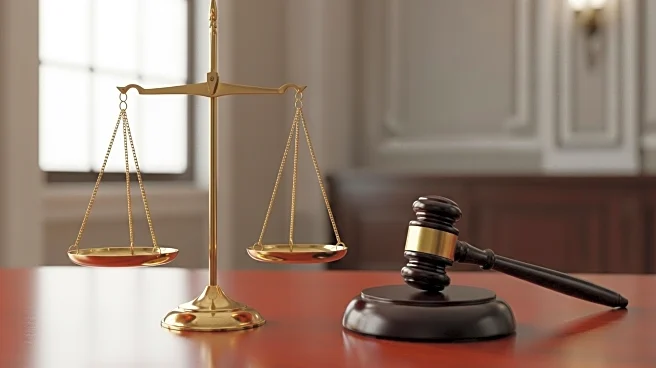What is the story about?
What's Happening?
A federal judge has ruled that two federal agencies engaged in a campaign to detain and deport international students and faculty for pro-Palestinian speech, violating the First Amendment. Senior U.S. District Judge William G. Young stated that the Department of State and the Department of Homeland Security targeted noncitizens to suppress pro-Palestinian protests. The ruling emphasized that noncitizens have the same First Amendment rights as citizens, countering arguments made by the Trump administration during the trial. The case, American Association of University Professors v. Rubio, involved testimony from State Department and DHS employees who were tasked with identifying noncitizen pro-Palestinian activists for investigation and deportation. The plaintiffs, including the AAUP and several university chapters, celebrated the decision as a significant victory for free speech.
Why It's Important?
This ruling is significant as it reaffirms the First Amendment rights of noncitizens in the U.S., challenging the Trump administration's policies that sought to suppress dissenting voices. The decision highlights the importance of protecting free speech and academic freedom, especially in higher education institutions. The actions of the federal agencies were seen as a threat to institutional independence and individual speech, drawing comparisons to historical events like McCarthyism. The ruling may have immediate implications for the Trump administration's policies, potentially curbing efforts to target noncitizen activists based on their political views.
What's Next?
Judge Young has separated the case into two phases, focusing first on the government's liability and then on relief for the plaintiffs. A hearing will be scheduled to determine the relief, with plaintiffs hoping for a permanent injunction against targeting noncitizens based on political views. However, Young expressed uncertainty about the remedy, given the current political climate where unconstitutional acts may go unchecked. The decision raises questions about the future of constitutional values and the public's willingness to defend them.
Beyond the Headlines
The ruling underscores the ethical and legal dimensions of government actions against free speech. It highlights the potential long-term impact on academic freedom and the chilling effect on political activism. The case serves as a reminder of the ongoing struggle to balance national security concerns with constitutional rights, and the role of the judiciary in upholding democratic principles.
















